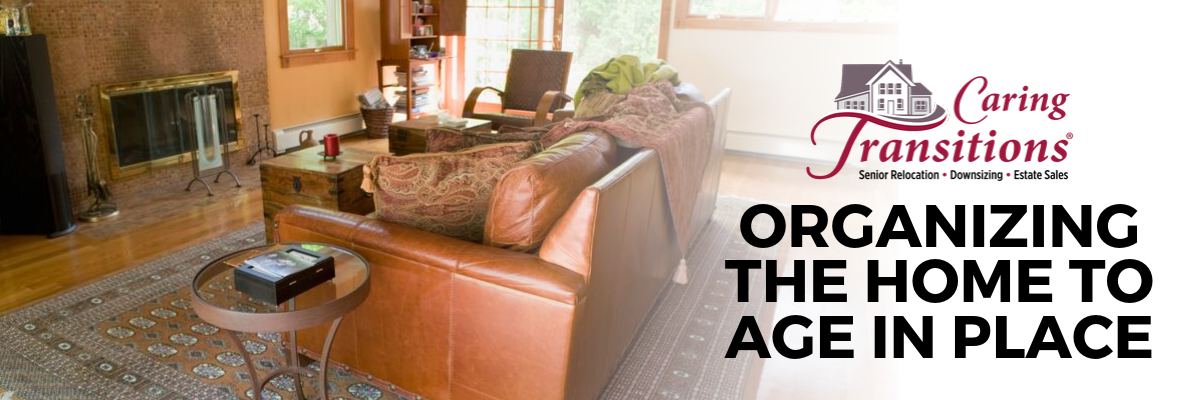
If you’ve decided to remain in your own home for the later
years of your life planning to organize your home to be more functional is
essential. Getting organized has both physical and mental benefits to healthy
aging. An organized home is linked to boosted mental clarity, lower stress
levels, and lower risk of injury. Each of these benefits can extend quality of
life now and in the long run.
Getting organized can become simple with a plan in place
that allows you to find the items you use most quickly and easily. The steps
below can help you organize your home for years to come.
Begin the process by clearing clutter.
It’s easy to cling to clutter longer than necessary. Most
households acquire a host of cherished and treasured items over time that are
connected to fond memories. Eventually, you may find yourself surrounded by
more possessions than you can handle if your mobility or health changes.
Decluttering can reduce the level of upkeep and maintenance of your home from
challenging to manageable.
Keep high use items in a convenient place.
All of us take comfort in very specific items. It could be a
favorite blanket, a coffee mug, a cozy sweater. Whatever “it” is, the best way
for a senior to enjoy it is in a handy way that does not require a constant
search to use it. This means making the most used areas of the home a priority
for decluttering and organizing, while choosing clear dedicated spaces for the
items we love and use most. The more convenient the placement the better.
Make important items easily accessible.
As we age, it may become more difficult to climb stairs,
reach for an item, or bend and crouch down. Placing important items in
conveniently organized spaces can make it simpler to access an item when it’s
needed. Industry expert Sabrina Quairoli suggests placing stored items
between waist and upper thigh height. This can be especially helpful
with medications. It’s important to clear out expired medications and
irrelevant prescriptions.
Use multipurpose storage options that are easily
accessible.
One of the first steps in getting organized is making sure
every item has a designated place. Without a place for each item to go, clutter
can easily be compiled and cause complications. More than likely some of the
items cluttering your home like baskets, photo frames, or serving carts could
be repurposed to create extra storage. In closets and cabinets, pulldown
shelving can be mounted to bring hard to reach shelves to your level.
Sort and store bills and important documents in a secure
designated place.
Pulling financial information together is essential to
tracking income, bills, and payments. Keeping pertinent information, paperwork,
and records well organized and readily available, is the key to simplifying and
addressing daily tasks efficiently. Experts at AARP recommend sorting items
according to “documents, paid and unpaid bills, receipts, brokerage, pension and Social
Security statements, medical expenses, contracts.” Then sort official records
legal and health documents. After sorting the items, consider placing the
documents in categorized binder or folders or creating electronic versions of
important items.
Creating a home that is organized and clutter free is the best
way to start your age in place journey. Clearing clutter creates a hazard free
home conducive for daily life. Getting organized before it becomes a necessity
will give you peace of mind.